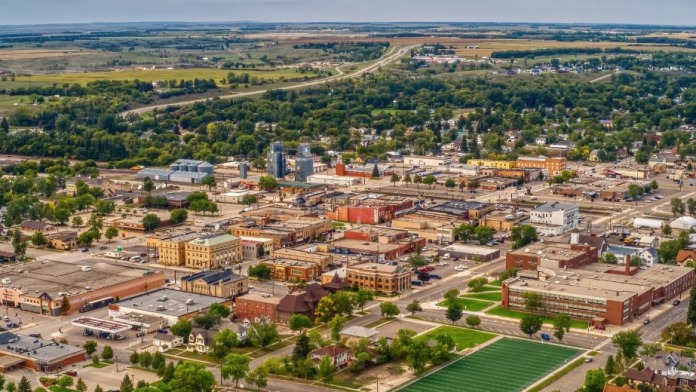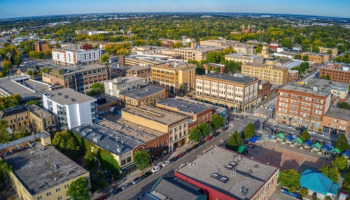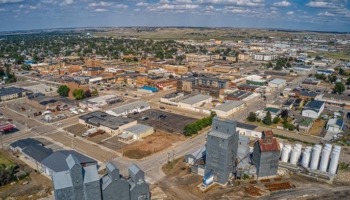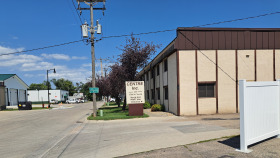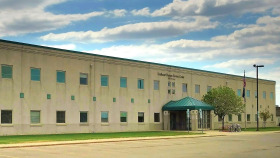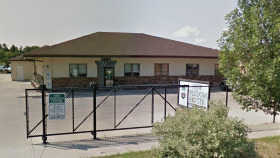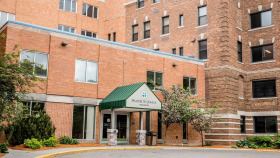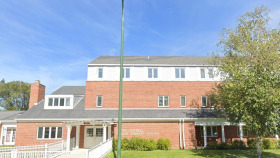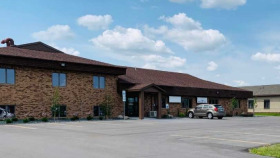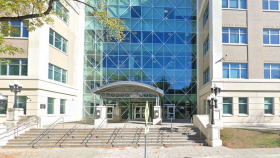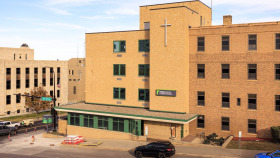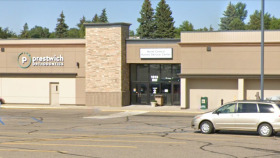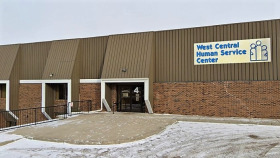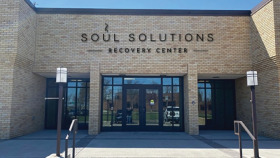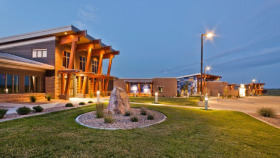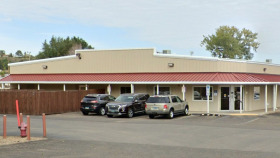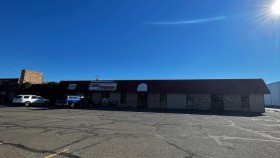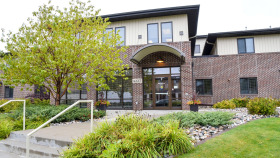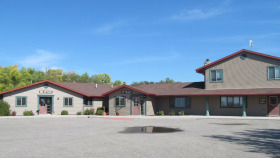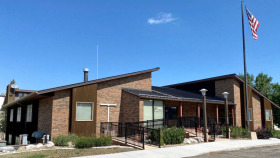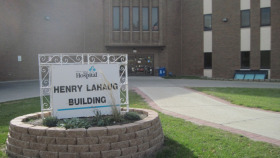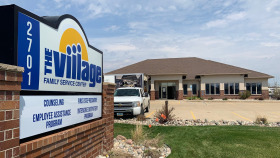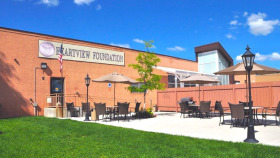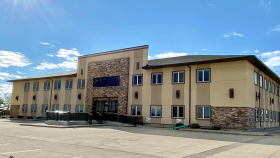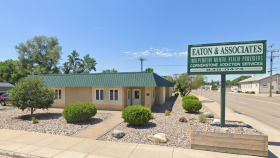Expert Insights
In my work as a psychologist, I’ve seen firsthand how social isolation, poverty, and limited mental health services can fuel the dual diagnoses crisis that my clients experience. This is especially evident in North Dakota.
According to a report by the North Dakota Health and Human Services’ Behavioral Health Division, around 21% of residents meet the criteria for a substance use disorder (SUD). However, 78% of North Dakotans who needed substance abuse treatment did not receive it within the past year.
The report also indicates that 26% of residents are currently living with mental illness and only 25% are currently seeking treatment for their condition. It’s evident from this data that we have much work to do to help clients find and easily access the life-saving help they need.
~ Serg Valencia, MD, MS
How Much Does Drug Rehab Cost in North Dakota?
North Dakota is ranked 49th nationwide in terms of addiction treatment affordability, with an average cost of drug and alcohol rehab of $64,673 (without insurance).
- Medical detox is the most expensive, with an average cost of $159,443
- Long-term inpatient drug rehab in North Dakota costs an average of $57,070
- Outpatient addiction treatment in North Dakota costs an average of $9,483
- Outpatient methadone treatment is the most affordable, with an average cost of $8,426
The cost of drug rehab in North Dakota can vary greatly depending on many factors:
Inpatient vs. outpatient rehab
Where the facility or detox center is located
Insurance plans accepted
Amenities and features (luxury vs. standard)
Length of stay
Paying For Addiction Treatment in North Dakota
North Dakota has many low-cost and free facilities that offer treatment to those that cannot afford higher prices.
You will find that some of the North Dakota drug rehabs are state-funded, while others require private pay or insurance coverage. A facility that is state-funded can offer free services since it receives money from the government to operate. To see a list of state-funded options in your area, visit the government website, Substance Abuse and Mental Health Services Administration (SAMHSA), and search the directory of North Dakota free rehabs.
As of 2024, there were over 90 drug rehab facilities across the state of North Dakota. Of those treatment facilities, the following numbers reflect how many offer free drug rehab programs:
Paying for addiction treatment centers in North Dakota can be challenging. However, when you take advantage of the opportunities available to help lower your expenses, you may find that drug and alcohol rehab is far more accessible.
Private Pay + Insurance
Most employers offer commercial health insurance and you can also access it through the Health Insurance Marketplace. Two federal laws mandate that most health insurance policies offer benefits for mental health and substance abuse treatment. However, there are exceptions to this rule, so it is crucial to verify your insurance policy before starting treatment.
Some people pay for substance abuse treatment without using their insurance policy, also called self pay or private pay. Some treatment centers offer payment plans for private pay patients. This affords you greater confidentiality and reduces the potential that your employer has access to your addiction treatment information. The following are major commercial health insurance providers who offer coverage for addiction treatment in North Dakota.
- Blue Cross Blue Shield of North Dakota
- Medica
- Sanford Health Plan
- UnitedHealthcare
Medicaid
Medicaid covers health benefits for people in North Dakota who meet the eligibility requirements. The program is funded by state and federal agencies but administered through the state of North Dakota. Eligibility requirements typically include citizenship in the U.S. or eligible immigrant, current social security number, North Dakota residency and income level.
North Dakota accepted the Medicaid expansion, which means more people qualify with an income up to 138% of the federal poverty level. Medicaid meets the mandated requirements for covering essential services, which include mental health and addiction treatment. You can check your eligibility for Medicaid through the Health Insurance Marketplace or North Dakota State Health and Human Services.
Medicare
Medicare is a federally funded health plan designed primarily for people over age 65. Medicare meets the requirements for essential health services that cover mental health and substance abuse treatment. There are two parts to Original Medicare. Medicare Part A covers inpatient care, including inpatient substance abuse and mental health treatment.
Part B covers outpatient care, including therapy, and doctor visits. Medicare Part C is a premium based, managed care plan offered by commercial health insurance policies that sometimes include additional benefits. Medicare Part D is a premium based, managed care policy that covers prescription drugs, including drug substitution therapy for opioid addiction. More than 141,000 people living in North Dakota are enrolled in Medicare and just over 25% of those are enrolled in Medicare Advantage.
Military Insurance
TRICARE is the primary health insurance program for active duty and retired military personnel and their families. TRICARE offers comprehensive coverage worldwide and combines resources from the Military Health System alongside a network of civilian facilities and healthcare professionals. TRICARE provides health coverage in three regions, two are in the U.S. North Dakota is covered in the West Region and Health Net Federal services.
The Military Health System provides health benefits to roughly 9.5 million people through the TRICARE program and is administered by the Department of Defense. North Dakota assists military service members who are reservists and the National Guard to find healthcare benefits for themselves and their families.
Tribal Funding and Programs
Five federally recognized tribes in North Dakota are located wholly or partially within the state borders. The tribal governments interact with the federal government but are separate from the State government. The North Dakota Prevention Resource and Media Center offers prevention support for North Dakota tribes to address substance abuse within their community. This includes programs that support assessment, planning, implementation, and cultural competence.
North Dakota Health and Human Services has a Substance Use Disorder Voucher Program that helps increase the accessibility of treatment for underserved areas and individuals whose annual income is not greater than 200% of the federal poverty guideline. In 2018, United Health Group announced a scholarship program for Native Americans to increase access to mental health and substance abuse professionals within North Dakota. The foundation collaborates with Community Partners, grants, and Outreach efforts.
Other Low-Cost Options
When you don’t have commercial health insurance or qualify for state or federal sponsored health programs, other options can reduce the cost of alcohol and drug rehab. The quickest way to start rehabilitation is with a personal loan from the bank or friends and family. While a bank loan offers greater confidentiality, friends and family generally charge less interest and have a more flexible repayment plan.
You might feel overwhelmed asking friends and family for help. But, without alcohol or drug rehab, the costs are far greater. These can include the cost of the drug, unemployment, damaged relationships, and possible jail time. Some addiction treatment centers allow patients to use payment plans and sliding scale fees to manage costs.
These usually require you to provide documentation of your income and ability to pay. You may also access nonprofit, faith-based programs. They accept donations that help fund treatment for people who cannot pay. Local businesses and organizations may also offer grants and scholarships to help pay for rehab treatment.
Resources
- Foundation, C. (n.d.). The opioid epidemic: Seeking solutions in North Dakota.
- Substance Abuse and Mental Health Services Administration. (2020). North Dakota State-Specific Tables.
- National Institute on Alcohol Abuse and Alcoholism. (2021). Treatment for Alcohol Problems: Finding and Getting Help. National Institutes of Health.
- National Institute on Drug Abuse. (2022, March 22). Treatment and Recovery. National Institutes of Health.

